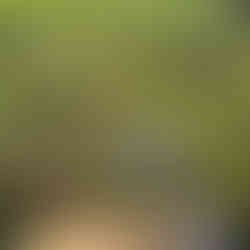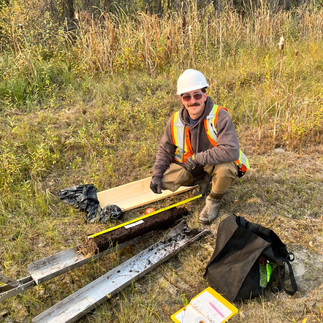2023 Field Season: A success for our first full field campaign
- leliaweiland
- Jan 15, 2024
- 2 min read
In May 2023, we began our first full field season at the Aspen field site. Our team consisted of Masters students Joseph and Veronica along with help from undergraduate students Rakshit and Daniel, a visiting German Masters student Pauline and Masters student Emma. Our technician Lelia and supervisors Scott and Maria were also in the field periodically over the summer.
May was a busy month, with a ton of set-up and construction taking place. Joseph built 78 piezometers for measuring hydraulic conductivity and hydraulic gradients. This was no small task, with each pipe requiring cutting, drilling and covering with well socking.

June brought the beginning of the true field season. We set up our very first eddy covariance system in the field, consisting of three full days of carrying heavy equipment through peat, building a sturdy base, and connecting all the sensors and testing them. And while nothing ever goes as smoothly as you plan for, each setback was met with a determination to get the system running, and when it was finally complete, we are happy to say that we were pretty proud of how it went!
Veronica was busy in June, completing CO2 chamber installs, and completing regular measurements. This was also no simple task, with a round of measurements taking up to 2 full days of work! Along with measuring the gas fluxes within these chambers, Veronica took photos of each chamber to get a temporal understanding of vegetation changes.
Joseph also began regular field season measurements after spending time installing his 78 piezometers. Regular measurements meant spending a full day walking to each site and recording the water level in each pipe, on a weekly basis.
The rest of the summer went smoothly, with regular measurements being completed by all, and the eddy covariance system recording data fairly reliably. Mid summer brought torrents of rain, making walking through already wet peat that much more challenging.
The end of the summer found Veronica investigating the gas fluxes of the nearby peat stockpile, and deciding to refocus her project to that area for next summer. Joseph ended the summer by collecting some peat cores for further analysis in the lab. The eddy covariance system was removed in late September for the winter, and work continues on, to understand what can be done better next summer.
Stay tuned for updates on our upcoming 2024 field season!
























Comments